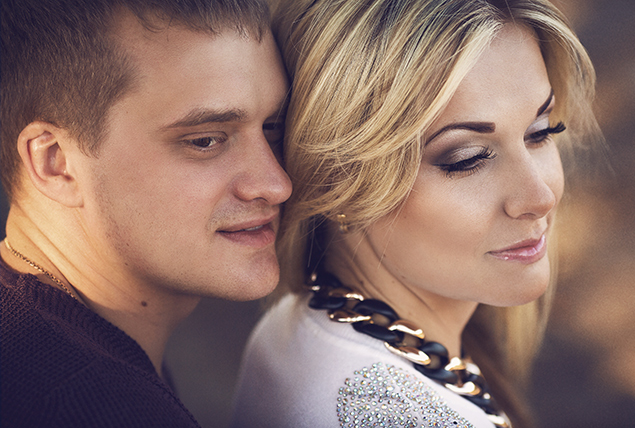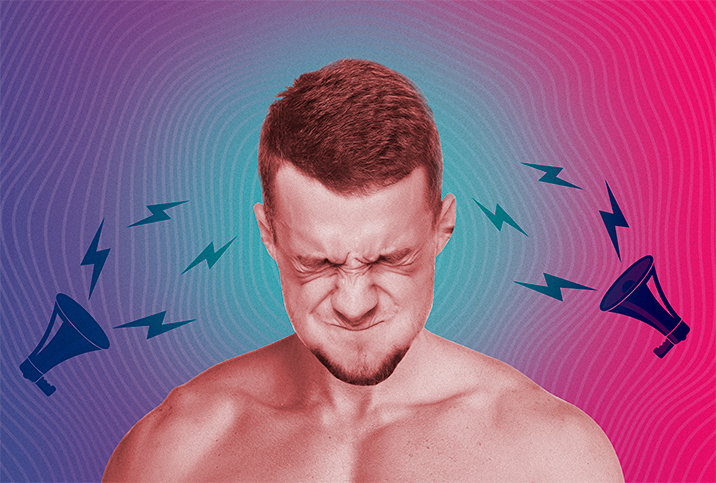Autism in Women Should Never Be Overlooked

Jasmine Anderson always wondered if she was on the spectrum, though autism in women historically has been considered uncommon. When her 2-year-old son began exhibiting traits such as stimming—typically defined as repetitive or unusual body movement or noises—meltdowns, sensory difficulties and intense aversion to change, she knew.
"Seeing him experience these things triggered memories of myself also experiencing and doing these things," said Anderson, of Glasgow, Scotland. "It began to click that I may be autistic, too. When I looked at my life as a whole, there had been other things, such as extreme anxiety walking into a room of people, feeling overwhelmed by noise, smells and sounds, feeling like I was different from everyone else, and studying them and staring at them intensely so I could mimic their behavior, so I'd know what to do in social situations to get by."
According to Wendela Whitcomb Marsh, a board-certified behavioral analyst in Salem, Oregon, and author of "Recognizing Autism in Women and Girls," autism spectrum disorder (ASD) consists of a group of behaviors and responses affecting social communication and interaction, including restricted, repetitive patterns of behavior, interests and unusual sensory responses. About 1 in 40 children in the United States and 1 in 100 globally experience autism spectrum disorder.
The belief that girls and women are unlikely to be autistic means many cases are undiagnosed until much later in life or not at all.
Of the numerous misconceptions about ASD, one of the more prevalent is that it almost exclusively affects males. While the condition may be more common in people assigned male at birth, the belief that girls and women are unlikely to be autistic means many cases are undiagnosed until much later in life or not at all.
The complexities of living with ASD can derail many aspects of your life, including romantic and sexual relationships. Individuals with ASD cite social cues, sensory dysregulation and repetitive behaviors as significantly getting in the way of the spontaneity and playfulness required for sexual contact. Sexual health goes beyond the physical component and relies on emotional and social skill sets that are difficult for people with ASD to manage.
Misdiagnoses and delayed diagnoses can have multiple adverse effects, including poor mental health, lack of access to resources and feelings of isolation.
"Low self-esteem is common among girls who remain undiagnosed," Whitcomb Marsh said. "Some believe that they are somehow alien, completely different from others, or that they are not a good person since good people don't accidentally come across as rude or insensitive. Knowing that there is nothing 'wrong' with them is often a huge relief, that, in fact, they're doing great as an autistic person rather than failing at being a neurotypical person."
Why the gender gap?
ASD was previously thought to be about four times more common in males, but recent research suggests the figure is inaccurate. According to a 2017 meta-analysis published in the Journal of American Academy of Child and Adolescent Psychiatry, quality studies indicate the male-to-female prevalence ratio is closer to 3-to-1. Some experts suggest the margin may be slimmer.
It's unclear why such a discrepancy exists, but gender bias is a likely factor. Males are more likely to be screened for ASD in the first place, according to the research. Moreover, a male is more likely than a female to receive an ASD diagnosis even if their traits are equally pronounced.
The Diagnostic Statistical Manual of Mental Disorders, 5th edition (DSM-5) does not provide distinct criteria for an ASD diagnosis based on sex or gender, Whitcomb Marsh explained, but the interpretation of traits can vary.
"For example, the ways in which each engages in repetitive self-stimulatory behaviors, or 'stims,' is different," she added. "We are used to seeing boys stim by spinning themselves around or shaking their hands. But when a girl spins, we say she is dancing, and if she flutters her hands, we may call it 'jazz hands,' and [do not] recognize it as an autistic stim. Where a boy may rock back and forth or bite his own hands, a girl may jiggle her leg or bite the insides of her cheeks. It looks different outwardly, but it may be a similar response to stressors."
People of color and nonbinary people may find it particularly challenging to receive an accurate diagnosis, despite the fact autistic people are more likely to be gender-diverse than the general population.
'Masking' traits
Autistic people can also fly under the radar due to their tendency to mask traits to best suit social expectations, both Anderson and Whitcomb Marsh said.
"Some children, regardless of gender, may go undiagnosed due to different cultural or social expectations, for example, ideas that children should be seen and not heard, to not look people/elders in the eye because it could be a sign of defiance or to play alone to stay out of trouble," said Nicole Peniston, a licensed clinical psychologist at Thriveworks in Edison, New Jersey. "However, there is no specific identified neurological or biological difference between males and females with ASD."
While masking isn't gender-specific, experts say girls and women may be more adept at it and feel more pressure to use masking.
"Often, females are better able to mask or hide their symptoms, or their symptoms can be overlooked or mistaken for excessive shyness, depression or anxiety," Peniston noted.
"We are more socially aware of cues and behaviors, and so we grow up knowing that our autistic traits are not deemed socially acceptable, so we study and copy neurotypicals in their body language, vocabulary and tone of voice to pass as 'normal,'" Anderson said.
While masking can make day-to-day life easier, it can also be enervating. Anderson has experienced this herself and notices similar effects on her daughter.
"She does well in school but comes home and lashes out in a meltdown because she's been masking all day and she's exhausted," Anderson explained.
Jasmine Woods, an autistic woman in Bristol, England, said society tends to tolerate "eccentricities" in men more than in women and nonbinary people.
"It's expected that women will be better at socializing, more polite, more emotionally adept than men, so autistic traits that contradict these are repressed," she said. "Certainly, as a child, I was often told that my meltdowns were a result of my being 'too sensitive' or 'overexcited,' which are emotions traditionally considered 'feminine.' I was also discouraged from physically stimming, whereas I feel it's more acceptable for younger boys to be seen as 'fidgety' or needing something to occupy their hands."
The struggle for a diagnosis
Many females presumed autistic don't consider they may be on the spectrum because of the various misconceptions regarding the condition.
"The media portrays the majority of autistics as male," Woods said. "Aside from [scientist] Temple Grandin, I didn't know any other famous autistic women when I was growing up. Unfortunately, for a lot of people, their first introduction to autism was through the film 'Rain Man,' which remains hugely damaging as a benchmark for what autism is like. 'Rain Man' and Albert Einstein were the templates for an autistic person when I was a child: male, genius-level intellect, obsessive, difficult and unemotional."
Many patients with autistic traits who see a doctor receive one or more misdiagnoses, such as attention-deficit/hyperactivity disorder (ADHD) or obsessive-compulsive disorder (OCD). Other common misdiagnoses include depression, anxiety, social anxiety disorder, post-traumatic stress disorder (PTSD) and anorexia. While these conditions often co-occur with ASD, receiving one diagnosis without the other fails to provide the complete picture autistic people need and deserve.
"I was so nervous about seeking a diagnosis because when someone asks you, 'Why do you think you're autistic?' it can be hard to articulate," Anderson explained.
She was also concerned doctors might be dismissive and attribute certain traits to her past trauma and complex post-traumatic stress disorder (CPTSD). In her early 20s, she was misdiagnosed with a borderline personality disorder.
"I can see why I was given that diagnosis," she said. "My life was a mess and my relationships were volatile. However, looking back, a lot of the times I was in crisis with my mental health, I was experiencing meltdowns. It was only recently I was able to distinguish between a period of bad mental health with CPTSD and a meltdown."
Anderson's sister advocated for her, helping to relate Anderson's traits and experience to doctors, who ultimately diagnosed her with autism. Anderson believes it's genetic because she has autistic siblings and both of her children are on the neurodevelopmental pathway for diagnosis.
'I love that I'm autistic'
Woods sought and received an autism diagnosis in 2021, shortly after her 30th birthday. While she thrived in childhood at a small, accommodating private school, she struggled to transition into adulthood and, eventually, realized she needed help.
"I found things a lot harder, notably making and maintaining friendships and being able to cope with sudden changes, however minor those might be," she said. "As an adult, I also recognized that a lot of my behavior lined up with what I knew about autistic people. I have verbal and physical tics, I stim, I have obsessive interests, I'm easily overwhelmed by lights and sounds, I can have meltdowns and periods of mutism and echolalia. The real turning point for me, though, was having a mental breakdown in the autumn of last year. I was working in retail at the time and I was completely overwhelmed by overwork, the general public and the lack of support from my company."
Woods said her diagnosis provided an "overwhelming sense of relief."
"It made thousands of things that have happened to me in the past suddenly make sense," she said. "The diagnosis was hugely important to me, not just the affirmation that what I was experiencing was down to autism, but also that I now have a named condition, which has definitely made things much easier in terms of managing my life and asking for help."
A correct diagnosis is often necessary for autistic people to receive accommodations and support at work and elsewhere. It can also unlock a key part of their identity.
'I certainly wouldn't go so far as saying that autism is a superpower or any of those empty superlatives, but I definitely recognize there are strengths to the way my noggin works.'
"It is part of my identity as much as my being a woman, being queer and being physically disabled is," Woods said. "It's just the way my brain is wired, and I've never known anything else. I certainly wouldn't go so far as saying that autism is a superpower or any of those empty superlatives, but I definitely recognize there are strengths to the way my noggin works. I just wish society was a little more understanding when it comes to the needs of neurodiverse people."
"I love that I'm autistic," Anderson said. "Are there things that I wish I didn't struggle with so much? Absolutely. But I enjoy seeing life through a lens that not many others can see. I enjoy studying people and what makes them tick. I have a vivid imagination. I am creative, empathic and intuitive."
Whitcomb Marsh advises people who think they may be on the spectrum to educate themselves about ASD, connect with other autistic people and discuss their thoughts and experiences with a licensed therapist or counselor. Autism in women needs more understanding.
"If you're told you can't be autistic because you make eye contact or because you're married or because you're too smart, you may need to educate them about masking and the differences in autism for women and girls," she said. "No one knows you better than you know yourself.
"However, if you need accommodations at work or school, you will need a diagnosis," Whitcomb Marsh continued. "Even if you don't need accommodations, perhaps you are finally realizing that you've been masking for years. You've been working twice as hard concentrating on how to make eye contact the right way, which facial expression to put on or how to navigate a group social conversation. You may feel exhausted and burned out. Maybe you want your family and friends to understand you better or you want confirmation just for yourself. Whatever your reasons for seeking a diagnosis, you should find a diagnostician who specializes in and has experience assessing autism in adult women. You deserve to be heard and seen as you are, without the mask."




















